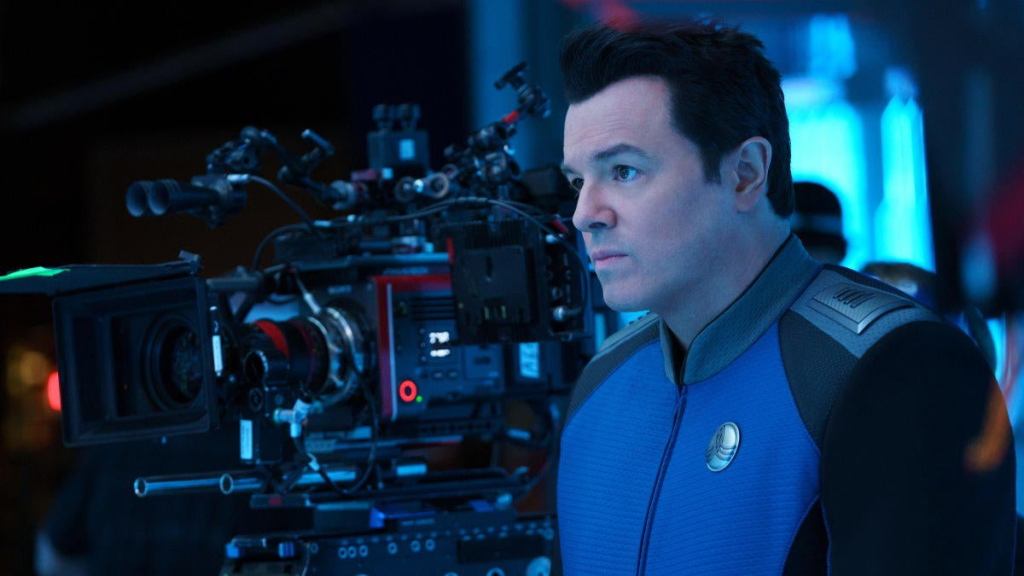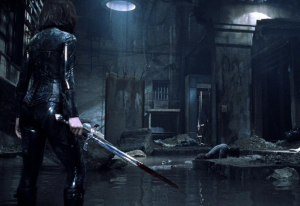It’s been a long wait, but The Orville , bearing the new title The Orville: New Horizons. Creator Seth MacFarlane is back in the captain’s chair as Ed Mercer. With the long gap between seasons, the jump from Fox to Hulu, the new title, and the show’s episodic, at times comedic format, the third season of The Orville could have been a completely fresh start for the show. Instead, the season premiere doubles down on dealing with the fallout of the Kaylon invasion from Season Two. ComicBook.com had the opportunity to ask MacFarlane why he and his collaborators decided to dig deeper instead of starting over.
Videos by ComicBook.com
“It was just better storytelling,” MacFarlane says. “The show began in Season One as an experiment, a hybrid in a lot of ways, between drama and comedy, and, like any show in a season one, it was finding its legs, and the more we got to know the characters and the more the characters were fleshed out it became clear that we could really depend on the characters’ personalities for the comedy and not have to worry about writing punchlines every page and really lean into the fact that we were a true sci-fi show, which we always were, we just pressured ourselves at the beginning to keep that comedic undertone a little bit more present. If I had it to go back and do again, I would walk the line closer to what we have now but that’s just, with any show, it takes a few seasons to find it very cool.”

From the two episodes we saw of the new season we saw before speaking to MacFarlane, the move to Hulu has had a notable impact on the series. Episodes are longer, with the two we saw running longer than an hour. Some of that extra runtime goes towards glorious digital shots of the show’s starships that might not have been possible on a network television budget.
“Certainly on a visual level, the visual effects work this year is, I think, comparable to anything I’ve seen on TV, particularly as the season goes on,” MacFarlane says. “The team just did a hell of a job on all this stuff and I think people are going to be really shocked at the scope of this thing as the season progresses.”
He continues, “From a storytelling standpoint, it’s much better for me because the biggest issue I have with, particularly, the prevalence of streaming programming, there’s some talented writers working on network dramas, but the problem is that you have to cut everything down to exactly 43 minutes. That’s not how storytelling works. It doesn’t. Not every story wants to be the same length and if you have a scene that’s playing really great, that’s emotional and you take your time with it. and it really makes the audience feel something, you may have to cut something down that really should not be cut down. Now, there’s a discipline, at the same time, on the other side of things. You don’t want to indulge yourself to the point at which you’re boring your audience. But for a show like this, to be able to be cinematic and to take the time to set the mood is something you just can’t do on a network because you’re just so constrained by that time limit, and that, to me, more than anything else was the most satisfying thing about the move.”
Certain expectations come with being on a streaming service as these services have trained audiences to expect serialized stories paced like long movies. Yet, MacFarlane hopes to keep the episodic storytelling of The Orville‘s first two intact.
“It’s a little of both,” he says. “We do want each episode to feel like its own feature film, but in some ways, it is a reward for people who stuck with the show from the beginning. There are several stories that are, really, a more rich viewing experience if you are refreshed on seasons one and two. So to anyone who says, ‘I’m going to watch season three,’ I would say brush up on season one, season two, you won’t be disappointed.”
However, the episodes share a thematic connection, one that MacFarlane feels will resonate with viewers. “If there’s one single throughline that I think keeps popping up over the course of the season it is the challenge and the quest to find ways to live with and to coexist with people whose beliefs and lifestyles are radically different from your own,” MacFarlane explains. “The challenge of coexistence, particularly at this point in time, in our society is too relevant, but it’s important in an age when everybody is angry at each other. How do you find those threads of connectivity that allow you to maintain a functioning civilization? And that’s certainly something that’s a fundamental part of the season, I would say.”
The Orville: New Horizons premieres on Hulu on June 2nd.








